Just a quick note to say how wonderful it is to see the campus beginning to fill up with the smiling faces of Wesleyan parents and alumni. This morning I met with the Athletic Advisory Council, a group of dedicated alumni who have helped us to raise the profile of our sports programs at the university and to strengthen the quality of the students’ experience on all our teams. This afternoon I met with a group of parents and alumni who talked with me about Wesleyan 2020. It was most interesting to hear from this group about the distinctiveness of the Wes experience, and how to make its lifelong learning aspects more visible and compelling. One of the key ingredients emphasized by all the participants is the extraordinary quality of the faculty-student interaction. Our Scholar-Teacher model inspires new ways of thinking that permanently and positively affect our community.
The link on the Wesleyan homepage shows the full range of alumni programs this weekend. Of course, there is big game in football against Williams tomorrow, and we are hosting the NESCAC Conference Championship in men’s soccer. There are great seminars, screenings and exhibitions. I am particularly excited about Majora Carter’s talk tomorrow at 4 pm in Memorial Chapel. Majora has been a force for good things since graduating from Wesleyan in 1988, and her work on sustainable community development has been widely celebrated. Given our plans for the College of the Environment and for Civic Engagement, she is the perfect speaker for the Dwight Greene Symposium.
The College of Letters and the College of Social Studies are celebrating their 50th anniversaries this weekend. These great, innovative programs have introduced students to literature, philosophy, and history, economics, political science and social theory. The demanding comprehensives, the expectation of independent thinking, and the forging of close personal ties have been hallmarks of these programs that helped to define the very meaning of interdisciplinarity. HAPPY 50TH to COL and CSS!
If you are not able to get back to Middletown for Homecoming, I hope that our webcasts, videos and blogs give you a taste of what its like to be here on this beautiful Fall weekend.
[tags]Athletic Advisory Council, NESCAC, Majora Carter, College of Letters, College of Social Studies[/tags]



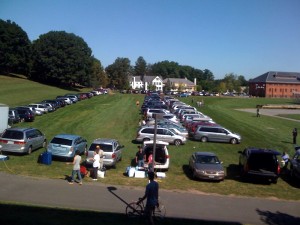
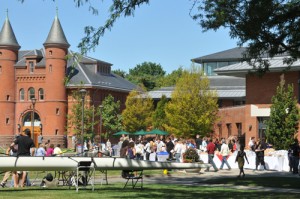

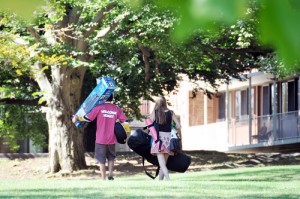
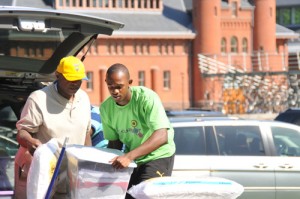
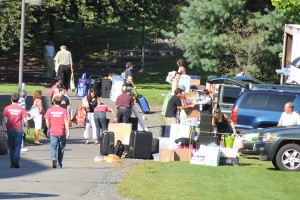
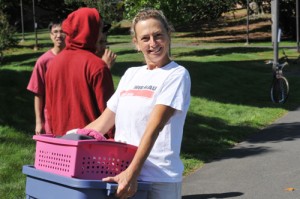
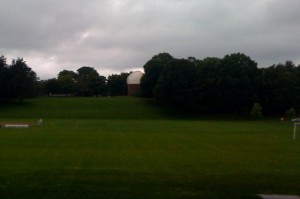 As is often the case, as we think about new programs we are also reminded of our past. In the final days of the fiscal year Wesleyan was the beneficiary of a significant bequest. John Pallein graduated with an English major in 1950, and spent the next two years in the US Army, serving in Japan and Korea. He began working as a technical writer, first for Pratt and Whitney and later for Beckman Instruments. I met John in California just before I moved back to Middletown, and it was clear that he felt a strong loyalty to alma mater. We talked about his work in the President’s House for Victor Butterfield’s family, and his enthusiasm about recent Wes students he had met. A gentle and amiable person, we spoke about the difficulties of leaving the West Coast after so many years. John had settled in one of the most beautiful spots I’d ever seen, Dana Point, but it was clear that Middletown was a locus of cherished memories for him. John’s bequest of more than $3 million will endow financial aid packages for Pallein Scholars in perpetuity, so that deserving students can also have access to the kinds of transformative educational experiences that served him so well.
As is often the case, as we think about new programs we are also reminded of our past. In the final days of the fiscal year Wesleyan was the beneficiary of a significant bequest. John Pallein graduated with an English major in 1950, and spent the next two years in the US Army, serving in Japan and Korea. He began working as a technical writer, first for Pratt and Whitney and later for Beckman Instruments. I met John in California just before I moved back to Middletown, and it was clear that he felt a strong loyalty to alma mater. We talked about his work in the President’s House for Victor Butterfield’s family, and his enthusiasm about recent Wes students he had met. A gentle and amiable person, we spoke about the difficulties of leaving the West Coast after so many years. John had settled in one of the most beautiful spots I’d ever seen, Dana Point, but it was clear that Middletown was a locus of cherished memories for him. John’s bequest of more than $3 million will endow financial aid packages for Pallein Scholars in perpetuity, so that deserving students can also have access to the kinds of transformative educational experiences that served him so well.